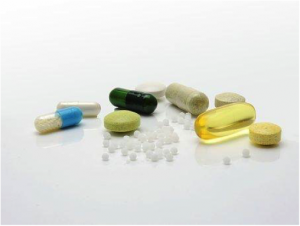Innovation in Encapsulation

What is happening in the world of encapsulation?
Simply put, it’s a way to control how the compounds in a product—like medicine pills, for example—are stored and released. It’s widely used in many markets, ranging from pharmaceuticals, to the food and beverage industry, to fast-moving consumer goods (FMCG).
At Strategic Allies Ltd, we’ve undertaken numerous scouting projects looking for new and innovative encapsulation platforms that provide additional benefits for consumers, including improved shelf-life, increased stability and the masking of unpleasant tastes or odours. Of course, there are also more serious benefits too. The technology behind encapsulation in medicine has improved the lives of millions around the world, such as diabetics where nano- and micro-technologies, as well as tissue engineering approaches, are contributing to the creation of artificial pancreas-like systems. Because of these benefits, manufacturers have a vested interest in keeping up with the latest market trends, and a recent surge in start-ups using plant-based solutions to advance encapsulation makes it unsurprising that the topic has come up time and time again in our searches. Here are some of the most innovative companies we’ve come across recently.
Let’s begin with the pharmaceutical industry, as it’s what many people think of first when it comes to encapsulation. Most drugs are enclosed in an outer shell during manufacturing that not only controls the delivery of the active elements into the patient’s body, but also improves how the capsule tastes, which makes the experience more enjoyable and helps people follow their prescriptions.
The stand-out here is Bionanoplus, a Spanish drug delivery company specialised in polymeric nanoencapsulation. Their drug delivery technologies avoid volatile organic solvents, meaning they provide increased bioavailability and can be taken in multiple ways, allowing for more flexible prescriptions.

Another industry that widely uses encapsulation is the food and beverage industry. Similar to pharmaceuticals, companies in this industry have to balance the taste of their products with the needs of a market constantly in flux. Encapsulation might just be the ace in the hole they need in an era of vegan diets, where meat-substitutes have taken the world by storm. These newer products are now almost identical to the real thing, primarily due to intense research in into the flavour, taste and textures expected by meat-eating consumers. Givaudan, for example, a large Swiss ingredients supplier, has developed a technology called PrimeLock+ that encapsulates fat (coconut oil) and flavour in a matrix, that partially melts during cooking, yet delivers a fat and flavour impression during consumption, much like animal fat cells do in meat.
We also recently came across Micro-Pow; a Swiss start-up founded by two researchers from ETH Zürich, who developed an additive-free encapsulation delivery system that transports aromas via specialised powders. These powders allow vegetarian burgers and meat-substitute products to taste, look and feel like real beef. The technology is also of interest to the pharmaceutical and cosmetics industry, among others.
Beyond the vegan market, in recent years, there has also been a rise in consumer health consciousness and, subsequently, increased demand for healthy food and drinks. Encapsulation technologies can help pack in the vitamins, minerals and other beneficial compounds that appeal to these consumers. Here are some of the prominent start-ups we’ve discovered in this area:
Nucaps is a European company located in Navarra, Spain. Their encapsulation technology for the industrial development of nanocapsules and biocapsules helps protect bioactives, probiotics and other active compounds in food, ensuring greater efficacy and stability. They have also patented several personalised, preservative-free bioavailable capsules that are high in natural proteins.
AnaBio, based in Ireland, focuses on the micro-encapsulation of probiotics. Many of the probiotics added to food and drinks die due to harsh environmental conditions, robbing the consumer of their potential health benefits. AnaBio’s patented micro-encapsulation technology protects probiotics against heat, oxygen, moisture and stomach acid, letting manufacturers deliver real health benefits to consumers. It can even help reduce overdosing, and create brand-new UHT-treated beverages with live probiotics.

And all this without even touching on beauty and personal care! Encapsulation is a buoyant market, and one forecast to hit $80 billion by 2028.
There’s no doubt many more innovations are on the horizon, but there’s only one way to hear about them before anyone else, which is by calling John at Strategic Allies Ltd on 07974 403530, or getting in touch via john@strategicallies.co.uk.

Author – Ashwini Joshi